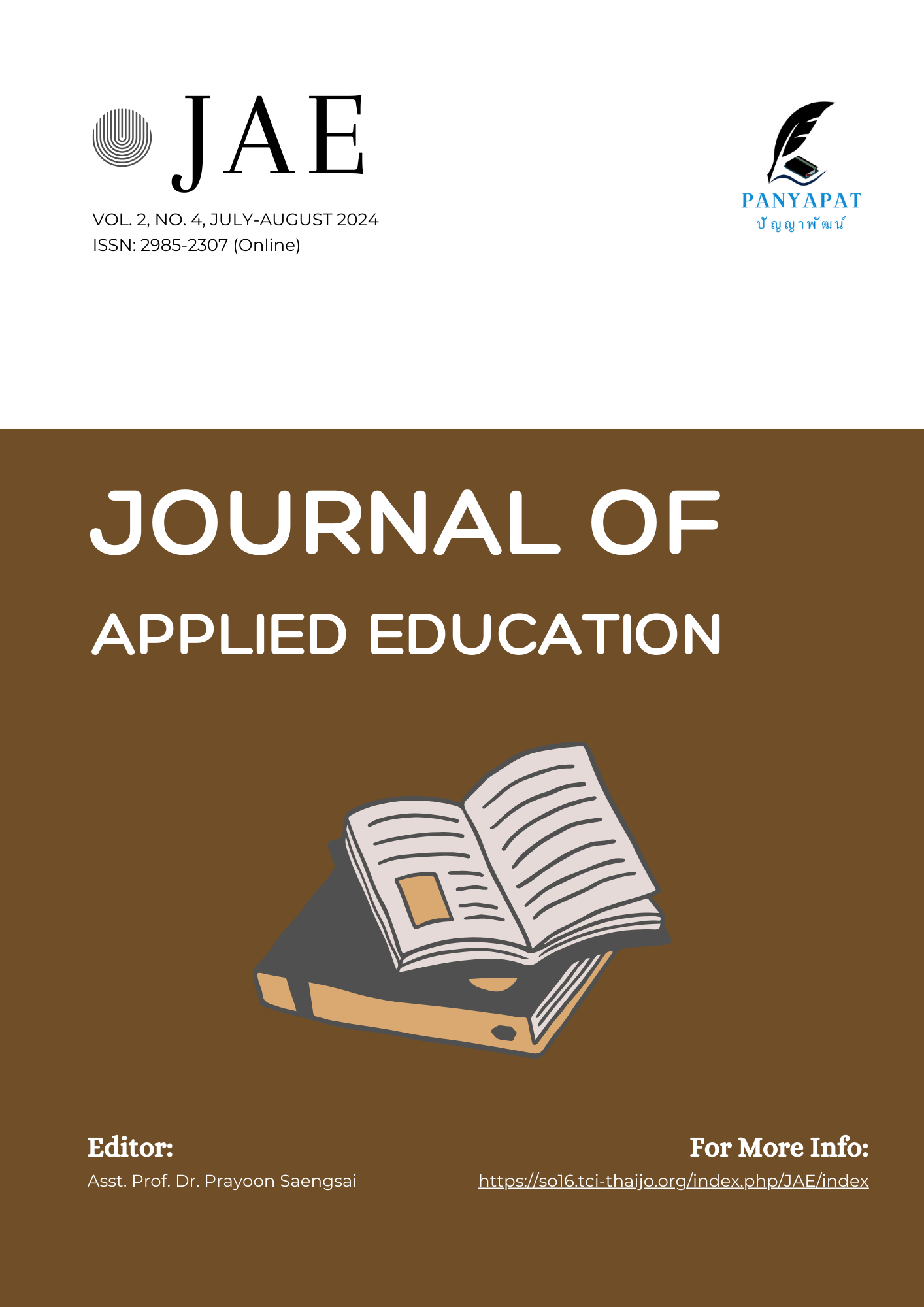Guidelines for Participative Management of School Administrators Under The Office of Non-Formal and Informal Education Kalasin Province
Main Article Content
Abstract
The objectives of this research were (1) to study the Guidelines for the Participatory management of school administrators, (2) to compare the Guidelines for the Participatory management of school administrators, classified by education qualification, position, and work experience, and (3) to study recommendations for the Participatory management of school administrators. The sample group consisted of 214 administrators, teachers and educational personnel. The statistics used were frequency, percentage, mean, and standard deviation t-test and one-way analysis of variance statistics F-test (One-Way ANOVA). The results showed that: Participatory administrative conditions of school administrators under the Office of Non-formal Education and Informal Education Kalasin overall, were at a high level. Comparison of participatory management of school administrators, classified by educational qualification, overall and aspect was no difference division. Classified by position, work experience overall, they were significantly different at the .05 level. Recommendations for Guidelines for the participatory management of school administrators under the Office of Non-formal Education and Informal Education Kalasin Province found that (1) Decentralization and decision-making Educational institutions should hold meetings to find solutions by taking problems occurring in the organization into planning. Decide together to find the best solution. (2) trust, Educational institution administrators should trust the decisions of their subordinates. (3) participating in setting objectives and jointly taking responsibility for implementation Personnel should participate in setting policies and agreements for working together. (4) independence to take responsibility and be able to take care of oneself, Educational institution administrators should provide independence in thinking, making decisions, and carrying out the operations for which they are responsible. 5) the relationship between each other and a sense of belonging to the agency together, Educational institution administrators should create an atmosphere for working in a friendly manner. (6) providing accurate, complete, and up-to-date information to everyone involved in decision-making, Educational institution administrators should provide information to those involved in order to create correct understanding.
Article Details

This work is licensed under a Creative Commons Attribution-NonCommercial-NoDerivatives 4.0 International License.
References
กมลชนก ศรีวรรณา. (2561). การบริหารแบบมีส่วนร่วมที่ส่งผลต่อการทำงานเป็นทีมในโรงเรียน สังกัดสำนักงานเขตพื้นที่การศึกษาประถมศึกษานครพนม เขต 2. (ครุศาสตรมหาบัณฑิต, มหาวิทยาลัยราชภัฏสกลนคร).
กระทรวงศึกษาธิการ. (2563). แผนยุทธศาสตร์กระทรวงศึกษาธิการ (พ.ศ. 2563 – 2565). กรุงเทพฯ: สำนักนโยบายและยุทธศาสตร์ สำนักงานปลัดกระทรวงศึกษาธิการ กระทรวงศึกษาธิการ.
นันทกิตติ แก้วกล้า. (2553). การบริหารแบบมีส่วนร่วม. กรุงเทพฯ: บรรณกิจ.
วิศรุต เพ็ชรสีม่วง. (2564). การบริหารแบบมีส่วนร่วมของผู้บริหารสถานศึกษา สังกัดสานักงาน เขตพื้นที่การศึกษาประถมศึกษาชัยภูมิ เขต 2. (ครุศาสตรมหาบัณฑิต, มหาวิทยาลัยราชภัฏชัยภูมิ).
สำนักงานคณะกรรมการการศึกษาขั้นพื้นฐาน. (2560). หลักสูตรแกนกลางการศึกษา พุทธศักราช 2551. กรุงเทพฯ: โรงพิมพ์ชุมนุมสหกรณ์การเกษตรแห่งประเทศไทย จำกัด.
สำนักงานส่งเสริมการศึกษานอกระบบและการศึกษาตามอัธยาศัย. (2564). ประกาศสำนักงานส่งเสริมการศึกษานอกระบบและการศึกษาตามอัธยาศัย เรื่อง นโยบายและจุดเน้นการดำเนินงาน สำนักงาน กศน. สืบค้น 27 กันยายน 2566. จาก https://moe360.blog/2022/06/16/policy-and-operational-focus-nfe/.
สำนักเลขาธิการคณะรัฐมนตรี. (2561). ยุทธศาสตร์ชาติ 20 ปี (2561–2580). สืบค้น 27 กันยายน 2566. จาก https://www.ratchakitcha.soc.go.th/DATA/PDF/2561/A/082/T_0001.PDF.
Krejcie, R.V., & D.W. Morgan. (1970). Determining sample size for research activities. Educational and Psychological Measurement, 30(3), 607-610.

